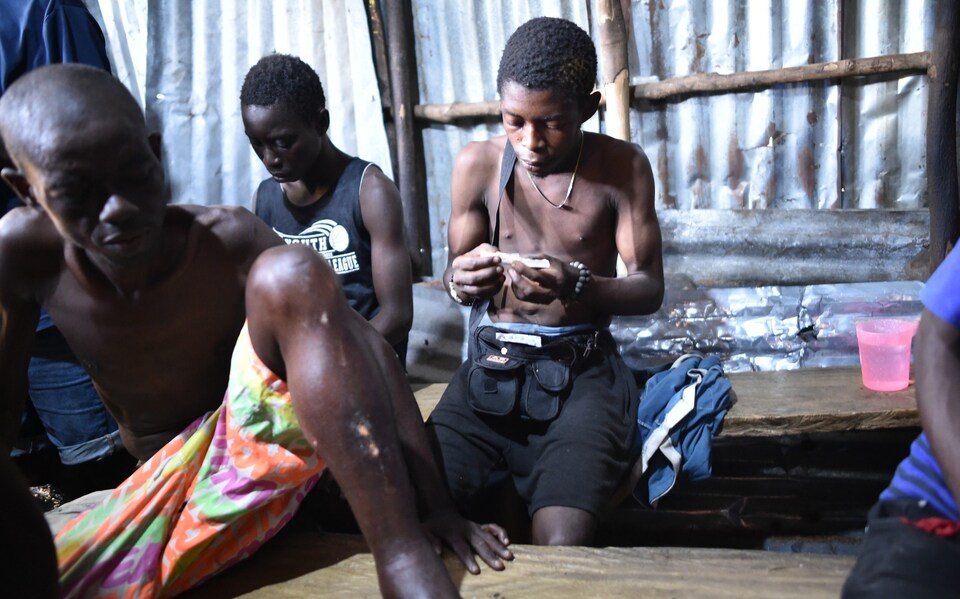In Freetown, under a bridge near a bustling market, a grim scene unfolds. Young individuals, clad in tattered clothes, gather in large numbers. Their posture and movements mirror that of zombies, with slouched shoulders and heads tilted, as they meander aimlessly. Many are shoeless, their feet marred by swelling and infection.
In this group, some still lucid share a joint, a concoction of opioids, cannabis, disinfectant, and, as local lore suggests, powdered human bones from exhumed graves. As they inhale and exhale, they await the euphoric high.
Among them is 21-year-old Amara Kallon, a school dropout and a regular user of “kush” – a synthetic drug that’s gaining popularity among Sierra Leone’s youth. It’s known for inducing a hypnotic state, disconnecting users from reality for hours.
Amara, now homeless, reflects on his addiction: “When I smoke kush, I forget my problems. I traded my belongings for this addiction, even resorting to theft.”
The cost of kush, while seemingly low at 5 leones per joint, adds up to significant amounts given the average income in Sierra Leone. Its composition varies, with reports of fentanyl, tramadol, and formalin being ingredients. The rumored inclusion of human bones remains unverified.
The drug’s impact is widespread in Sierra Leone, with addiction affecting entire communities. The Sierra Leone Psychiatric Teaching Hospital in Freetown is overwhelmed by the surge of addicts, many exhibiting violent behavior upon admission. In 2023 alone, nearly 2,000 cases were recorded, a sharp increase from previous years.
The hospital’s Dr. Jusu Mattia notes the recurring nature of addiction, with many patients relapsing post-treatment. The facility offers isolation treatment and antipsychotic drugs, but it’s the sole center actively caring for kush addicts in the country.
Sierra Leone’s high youth unemployment rate exacerbates the issue, with many like Amara turning to kush to escape life’s harsh realities. The drug, akin to heroin or cocaine in danger, can lead to severe psychiatric issues, physical ailments, and even death. Stories of users harming themselves or encountering fatal accidents while high are not uncommon.
The kush epidemic is not confined to Sierra Leone but is spreading across West Africa, notably in Liberia and Guinea. In Liberia, the combination of high unemployment and widespread post-traumatic stress disorder contributes to the crisis, with limited healthcare resources to address the need.
Political factors also play a role. Former president George Weah’s administration faced criticism for its handling of the drug crisis, with allegations of neglect and corruption. In Guinea, the consumption of kush has soared, with the drug reportedly being trafficked from Sierra Leone.
Efforts to combat the issue include police crackdowns on drug users and dealers, with over 100 convictions in Sierra Leone. However, Dr. Mattia emphasizes the need for a holistic approach, viewing it as a health and social issue rather than just a criminal justice problem.
In a recent UN-sponsored meeting, government officials, religious leaders, and social organizations in Sierra Leone discussed strategies for addressing the crisis. Plans for decriminalization, rehabilitation, and reintegration of addicts were proposed.
The reality of the situation was underscored by testimonies like that of Mohamed, who lost everything to his addiction. The plea for help resonates as the region grapples with a drug crisis threatening its youth.

